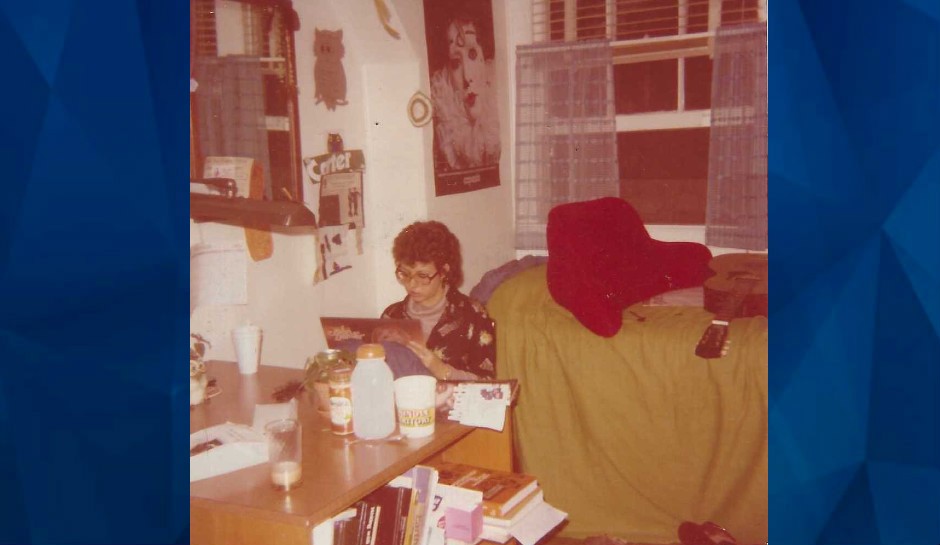Was Ted Bundy a charismatic, intelligent man destined for success before his arrest, or was he an awkward law school dropout with below-average intelligence?
Emilie Lucchesi, Ph.D., the co-author of Kathy Kleiner’s popular book, “A Light in the Dark,” sat down with CrimeOnline ahead of the 25th anniversary of Bundy’s arrest, to talk about the man behind the monster, who she described as an awkward loner with subpar intelligence.
“He was not that intelligent. He just, he really wasn’t,” Lucchesi said. “He also struggled in law school and he admitted that he didn’t have the aptitude. And it’s interesting because when he went to law school, it happened at this very interesting moment for the first law school he attended, and that is they’re brand new, they’re seeking to build a student body.”
“And, so if you have an undergraduate degree and a willingness to attend, you’re in. And somehow this very pertinent piece of information ended up being ignored when his biography developed.”
As CrimeOnline previously reported, on February 15, 1978, Bundy was arrested in Pensacola for driving a stolen Volkswagen Beetle. He resisted arrest and was taken into custody, and would later be charged with multiple murders.
A month before his arrest, Bundy broke into the Chi Omega sorority house in Tallahassee, where he killed two women and severely injured two others. Bundy killed Margaret Brown and Lisa Levy, then beat Karen Chandler and Kathy Kleiner, who both survived the attack.
Kleiner, whose book chronicles her life before, during, and after the near-death attack, recounted how she narrowly escaped death after Bundy beat her as she slept in her dorm room.
Bundy, according to Kleiner, grabbed an oak log from a nearby firewood pile and began hitting her in the face. The attack crushed her jaw in three places, shattered her chin, and cut her tongue open.
“My room was on the second floor, faced the back parking lot and our windows overlooked the driveway as, as you came in. It was like a U-shape, and that’s where all the sorority sisters were let off from a date or got into a car,” Kleiner recalled.
“It was about three in the morning and I heard a noise, a slight noise. It was the door opening against the carpet on the floor and he [Bundy] opened it and then it closed and I heard the swish again and I’m in bed.
“It didn’t wake or startle me or anything, it just kind of woke me up. Between our twin beds, my roommate and mine, was a little foot locker that we had and we put plants and books on it and a small little locker. And the next thing I remember hearing is that being tripped over because it’s dark in the room and it just wasn’t seen.”

“So this person tripped over that and made noise. Now I’m awake and I’m looking and I see a silhouette of someone standing next to me, someone next to my bed. He raised his arm up over his head. I saw he had something in his hand, but I couldn’t tell. And I’m squinting, and I’m looking, and before I knew it, he slammed that log on my face.
“It hurt so bad. My jaw was broken in three places. My chin was completely destroyed. My cheek was split open so wide, you could see the teeth on the inside of my mouth. Oh, and I almost bit my tongue off. It was just hanging on…And I think I, I passed out for a few minutes and then the next thing, he went over to my roommate’s side of the room, he attacked her again with that same oak wood.”
Determined to live her life without fear, Kleiner later decided to work at a lumber yard, despite lumber being Bundy’s weapon of choice when he attacked her.
“I would see a lot of guys. And the, um, the building smelled like lumber. And, I, kind of, all these things in my head that pushed me forward instead of taking me backward… I decided I didn’t need to live there and work there anymore. So I did learn that there’s a lot of cute construction workers out there and they helped me get over my phobia of men.”
Kleiner also credits yoga, visualization work, her family, and talking to others as a form of therapy to help her through the difficult times.

Meanwhile, Luchessi emphasized that the glamorization of Bundy, although appealing for movies and television, ultimately takes away from the memories of the victims.
“He stole almost everything he owned. And he was extremely frazzled in his thinking. He’s kind of like a wind-up top. He’s going, you know, around in circles. He’s, he’s not able to move in any type of linear fashion ’cause he’s just not that intelligent.”
“And what’s phenomenal to me is you go through and you look at a specific kidnapping and you will see interviews with women from the 70s– from the campus newspaper to the local newspaper saying, “that man came up to me and I said, ‘no.'”
“So, there are a few instances in which he did indeed did ask for help and, and, the victim agreed, but by and large, he was not charming women, he was not using this superior intelligence to kill. It was really just blunt force, barbaric trauma on innocent women.”
“And the reason we are so adamant about correcting this myth is that it’s come at his victims’ expenses, right? That it made people feel safe, right? To think, oh, he smiled at them. He asked them if they wanted a ride. He would feel handsome.”
“But in reality is, as you see in our book, he, the vast majority of women he attacked, he did so while they were sleeping in bed like Kathy.”
“A Light in the Dark” is available in all formats.
For the latest true crime and justice news, subscribe to the ‘Crime Stories with Nancy Grace’ podcast.


